Let the children live their childhood
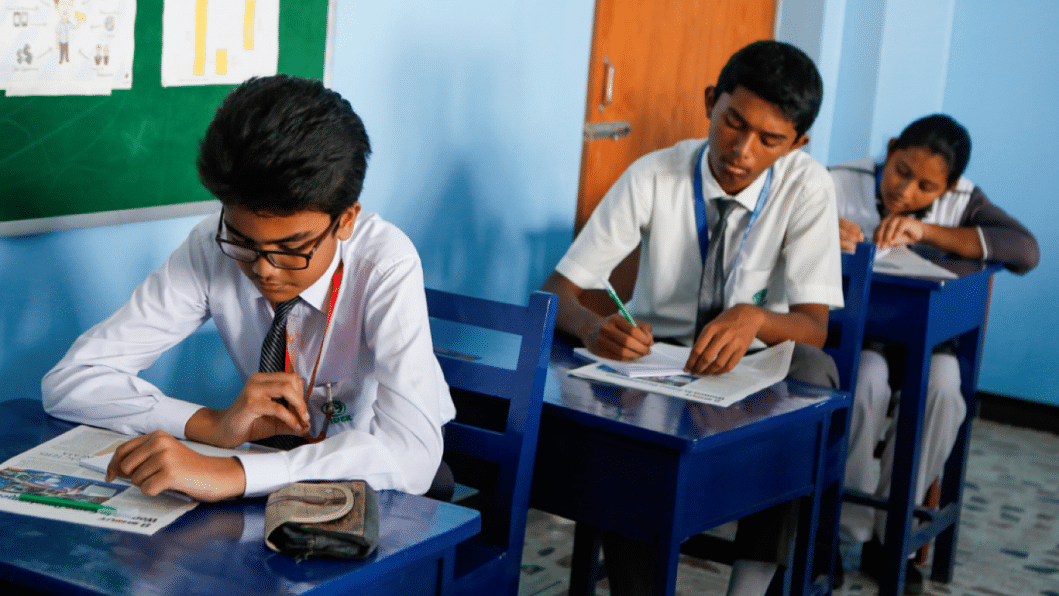
A few days back, my younger sister came to me and asked how she could find the motivation to prepare for her upcoming exams, I found myself confused and unable to answer this simple question. My confusion did not stem from my inability to understand her vocabulary, or phrasing. Rather, it stemmed from my inability to comprehend why a 12-year-old was so distraught about preparing for her midterm exams. What stake is she considering and why does she feel demotivated in the first place?
Later when I revisited the conversation, she added, "Please do not say good grades, that does not help." And that is what directed me towards a point of reflection, that has fuelled this piece.
In today's fast-paced world, children have somehow been placed in a hamster wheel, chasing too much at once. Children are motivated from a very early age to not only put their full focus on school, but they are also expected to take up multiple "useful" extra-curricular activities. If that weren't enough, there is a looming expectation of exceling at each of these endeavours. What children decide to do out of interest, they must be the best at, and it is a waste of effort and their precious time otherwise.
Before we know it, we are subjecting children to the claws of capitalism, and the futile and ever exhausting cycle of achieving and feeling like we must achieve more. Thus, these children with packed and often overscheduled days have little to no time for recreation, personal development and self-reflection, essentialities in the process of growth.
Instead of living through their childhood and letting them take the natural path towards becoming adults as the years go by, children are often expected to assume adult-level responsibilities to secure a "future," ignoring their age and all other variables that make this even more unfitting. Moreover, most of these children are not even aware of what it is exactly that they are geared towards.
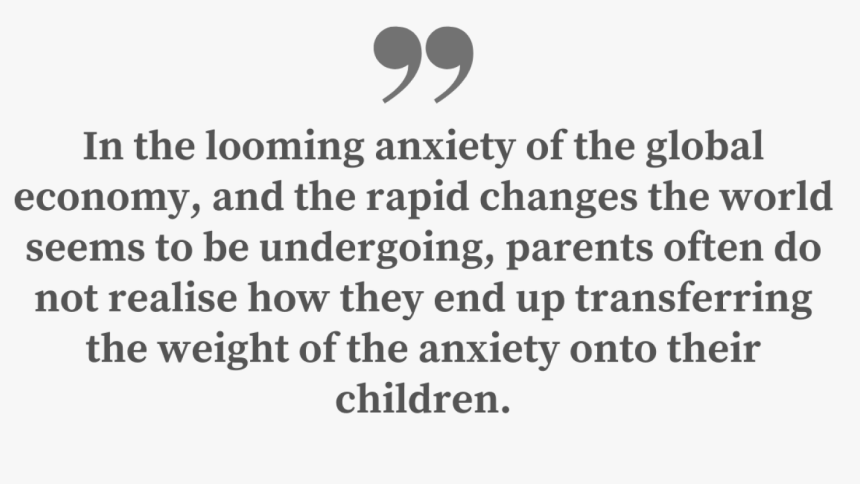
There is this mysterious future that they must work towards, instilling the idea that their present has little to no value, and they must continue to chase something that may give them rewards in the future. Being an adult, I struggle to grasp that concept myself. So, how reasonable is it to expect children to understand the intricacies of a time-bound commitment they are making with themselves?
Not truly comprehending what it is they are working towards, most children tend to make a trade-off and form a reward system for themselves. They work towards goals set by others, and upon achieving them, validate themselves with the appreciation they receive due to the results they have managed to achieve. And thus starts an unhealthy cycle of validating one's existence with the hazardous combination of personal achievements and external validation.
It is universally known that parents want what's best for their children, and it is not in my intentions to assume or express that they have any other motivations in doing these. Of course, parents do not want to take an experience as important as a childhood, away from their children.
It is understandable that they would like to prepare their children for the future and the unknowns that it holds. However, in the looming anxiety of the global economy, and the rapid changes the world seems to be undergoing, parents often do not realise how they end up transferring the weight of the anxiety onto their children.
When children are expected to burden themselves with adult levels of accountability and responsibilities, they also face troubles we usually associate with adults. Stress, anxiety, poor mental health, and a lack of self-esteem may be a few such impacts that could result from such a life set for the children amongst us.
Enforcing strict expectations and goals on children take away what little agency and choice they have. They lose the ability to discover their true interests, and selves. They are after all people, who deserve to set their own expectations from a life they are to lead. Infantilising them and making decisions on their behalf only takes away any shot they may have at learning accountability at a healthy pace.
Children truly believe their parents are omniscient. I know I did. We must understand that the ways of the world are forever changing, and they will continue to do so. Assuming responsibility for the future, for ourselves and the children, will not do much to put anyone ahead of this rat race.
We must allow children to read that comic, or paint a picture without the expectation of them becoming an illustrator or a future version of Salvador Dali someday. It is okay if that painting hangs in the living room till it eventually gets lost. It is okay for children to go through a process of trial and error to find out what they want to do. All that they do does not have to be set towards becoming someone or achieving something arbitrary.
Syeda Afrin Tarannum is a sub-editor at SHOUT. Email: [email protected]

 For all latest news, follow The Daily Star's Google News channel.
For all latest news, follow The Daily Star's Google News channel. 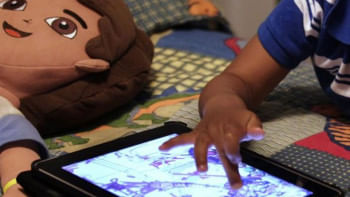




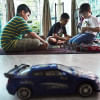


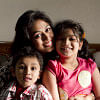
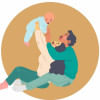


Comments